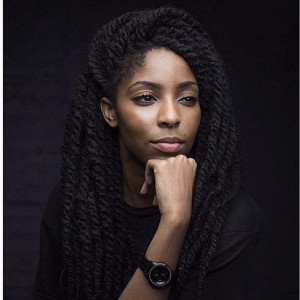Black Artists, Agency, and the Video of the Day
By Isaac Butler
The Daily Show’s Jessica Williams found herself at the center of an odd controversy last week, but probably not for the reasons you might think. Williams, responding to the internet’s outpouring of support for her to take over the desk from Jon Stewart, took to twitter to explain that she wasn’t interested in the job and is “extremely under-qualified” for the position.
Over at The Billfold, Esther Bloom decided this would be a fantastic time to talk about “imposter syndrome” and to tell America that Jessica Williams does not know what is best for herself:
How modest! How self-effacing! You can almost hear all the old white people who benefit from the status quo nodding their approval. We did it, they whisper. We have succeeded in instilling in yet another competent, confident young woman a total lack of understanding of her own self-worth! We didn’t even need to undermine her; we gave her the tools and she undermined herself. Well done all. Good show. Let’s play eighteen holes and then hit up Hooters for lunch.
Jessica Williams, respectfully, I reject your humility. What on earth does “under-qualified” mean when it comes to being a comedian? You’re smart, you’re funny, you’re self-possessed. Is there something I’m missing?
Williams, to put it mildly, was not amused, taking to twitter to write:
Are you unaware, how insulting that can be for a fully functioning person to hear that her choices are invalid? Because you have personally decided, that I DON’T know myself- as a WOMAN you are saying that I need to lean in. Because of my choice, you have diagnosed me with something without knowing me at all. For the world to see.
Eventually, Bloom apologized, twice.
I don’t want to harp on this more than is necessary. Bloom knows she was wrong, and she’s apologized profusely, but as this is a blog where we talk about race an representation, and this is a month where we’re talking about comedy, it’s worth thinking about a little.
Perhaps because Bloom is White and Williams is Black, it’s difficult not to read race as salient here, even though Bloom is explicitly talking about gender. Black artists struggle to be seen as themselves as opposed to pawns in some kind of symbolic chess game in a way that White artists almost never have to. With Whiteness taken as a given, or as “neutral,” White artists can avoid having to represent anything larger than themselves.
Critic Emily Nussbaum, writing in The New Yorker about Key and Peele, discusses her own brush with this phenomenon:
It was clear that I’d not merely underestimated “Key & Peele” but committed the dumbest possible error, slotting it into a ridiculous niche: the comedy show with two light-skinned black guys. No one calls Jimmy Fallon’s program “the white-boy show.” No one describes the “Late Show with David Letterman” as “the seems-like-he’s-about-to-snap-Caucasian-codger show.” Yet I’d not only wedged “Key & Peele” ’s comedy in with other Afrocentric sketch shows, from “In Living Color” to “The Chappelle Show”; I’d reduced the pair’s biracialism to a kind of gimmick.
Key and Peele’s biracialism is central to their comedy, but in a far different way than I’d imagined: it is expansive, not constricting, a Golden Ticket to themes rarely explored on television. Like many of the best, most transgressive comics, they treat human behavior as a form of drag, shape-shifting with aggressive fluidity.
In other words, by seeing Keenan Key and Jordan Peele only symbolically, she missed the riches and variety of what they were actually doing (it isn’t only White critics who do this, just to be clear, many artists of color talk about the stresses of having to live up to certain symbolic expectations within their own communities).
Interestingly, Williams and The Daily Show have explored exactly this point before, in today’s video of the day:


